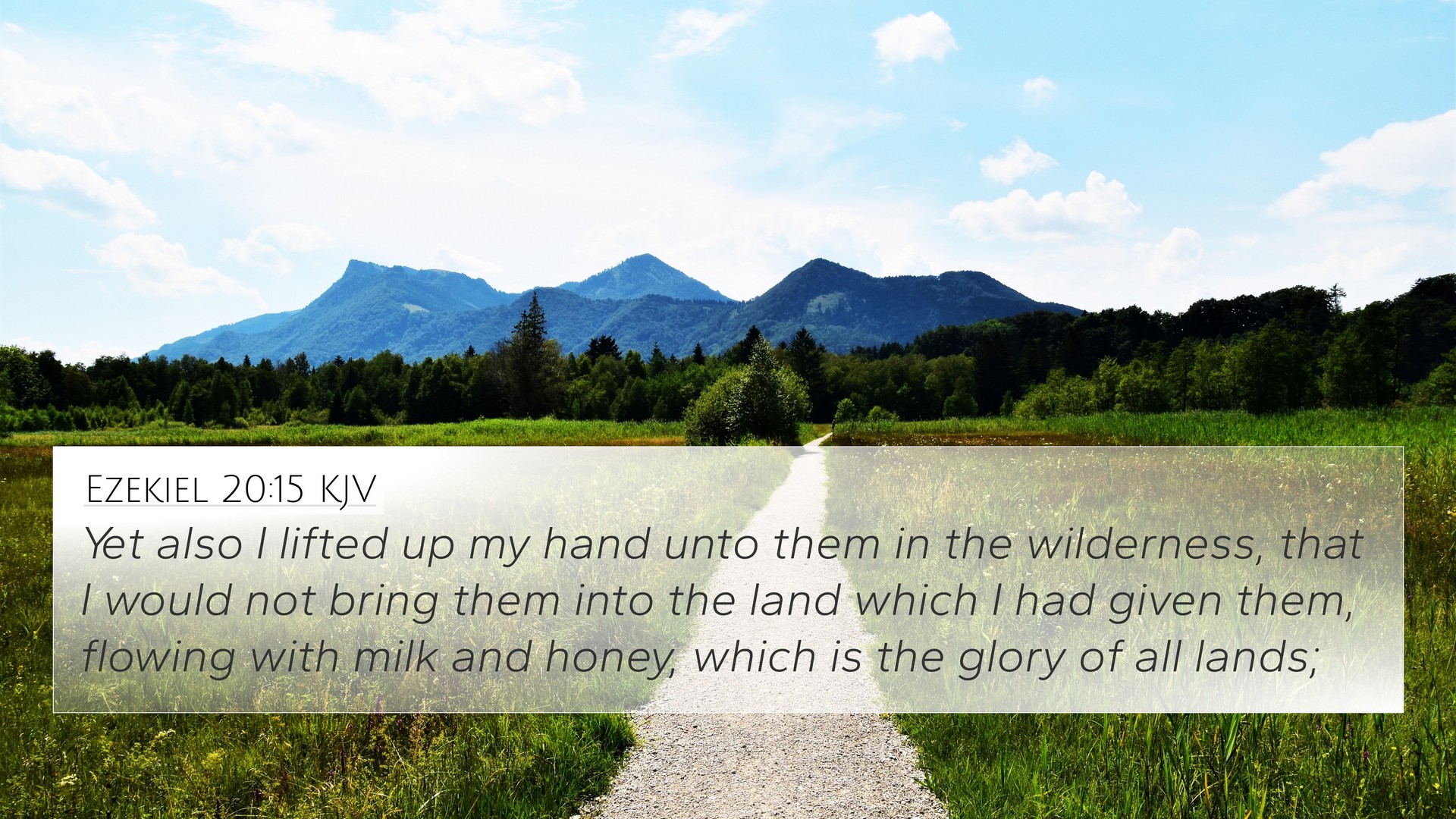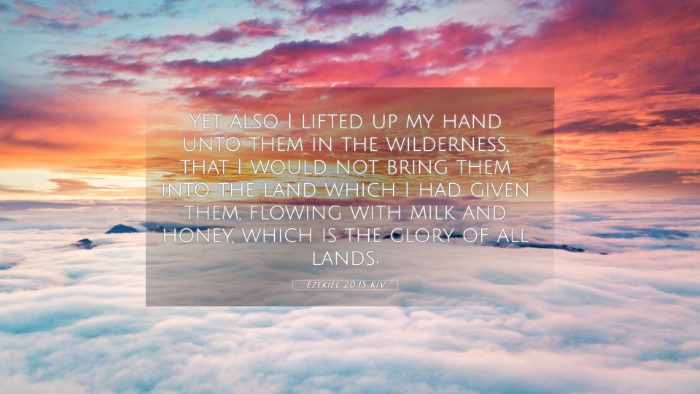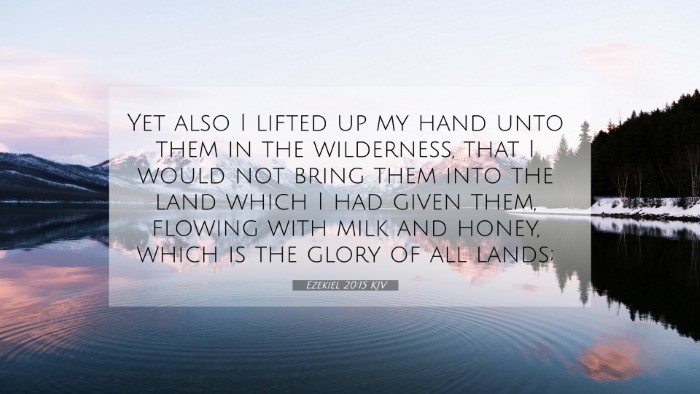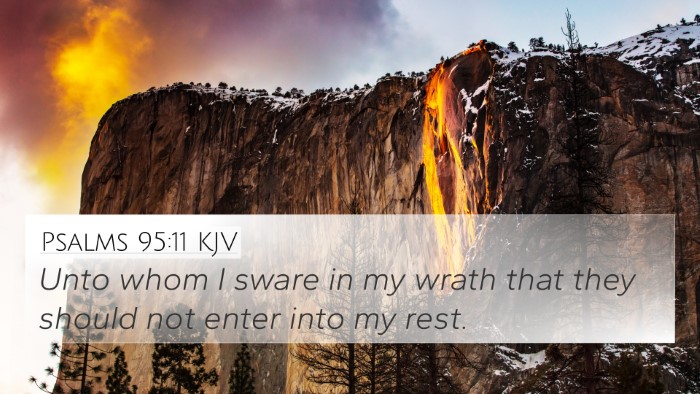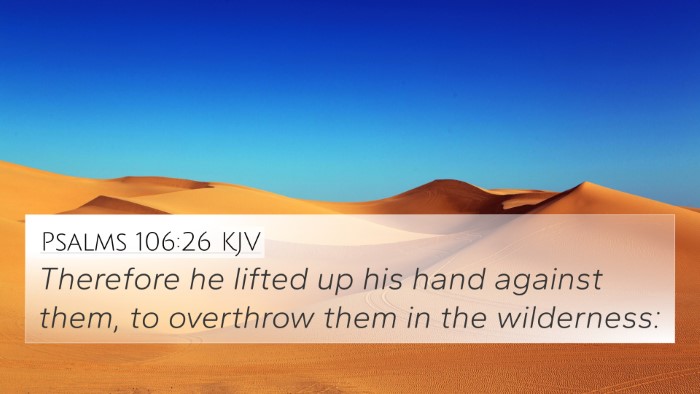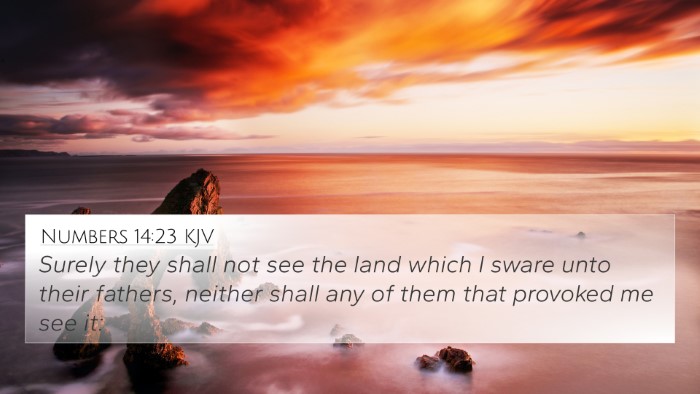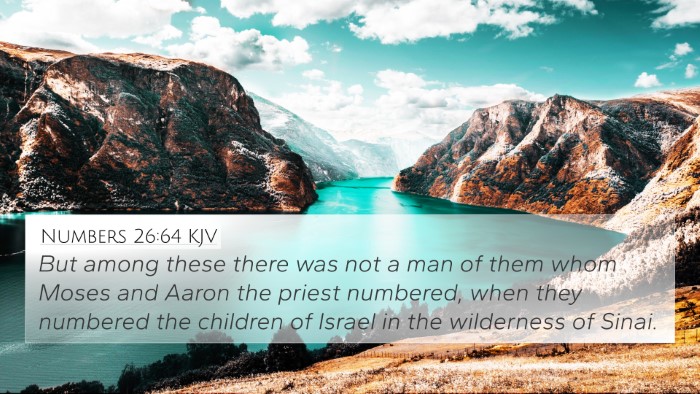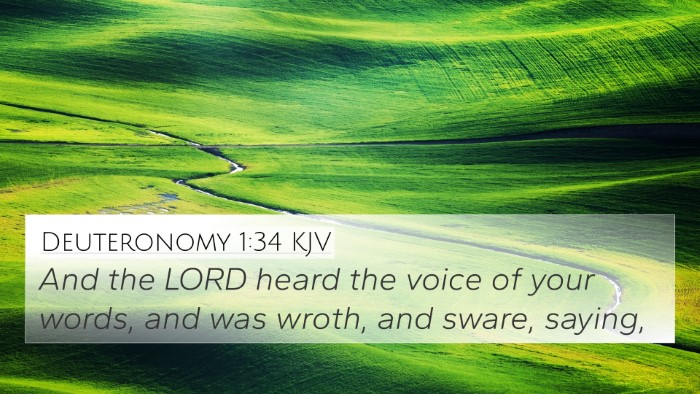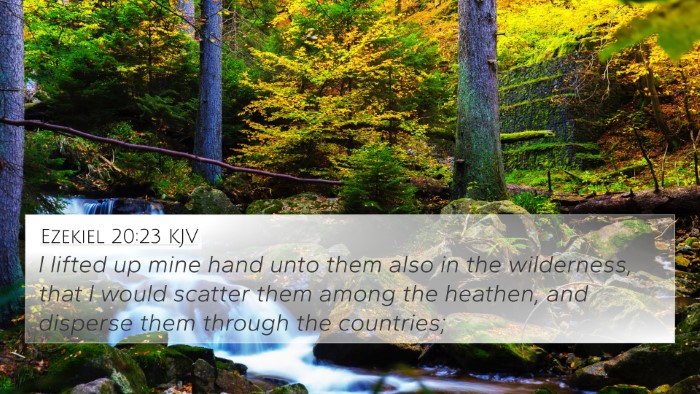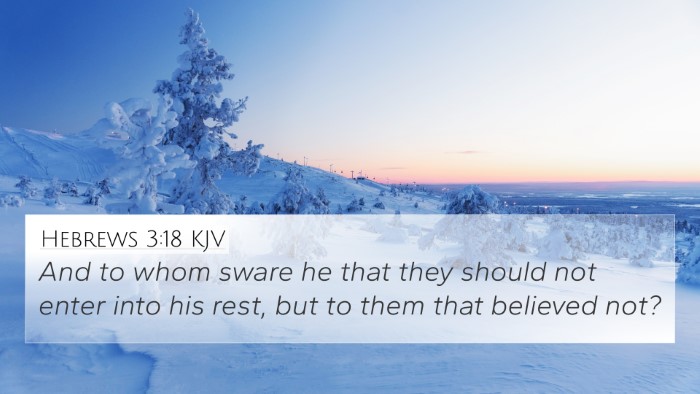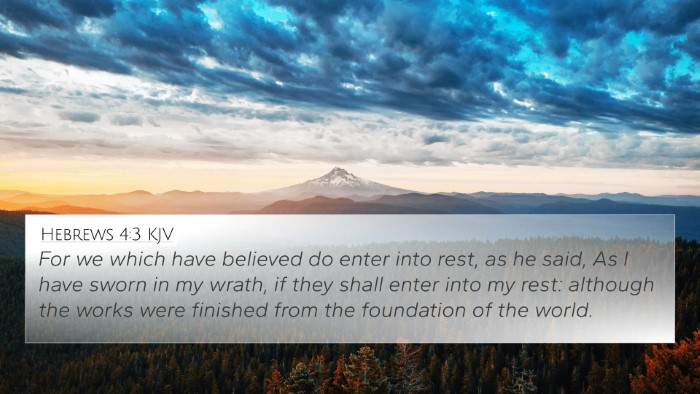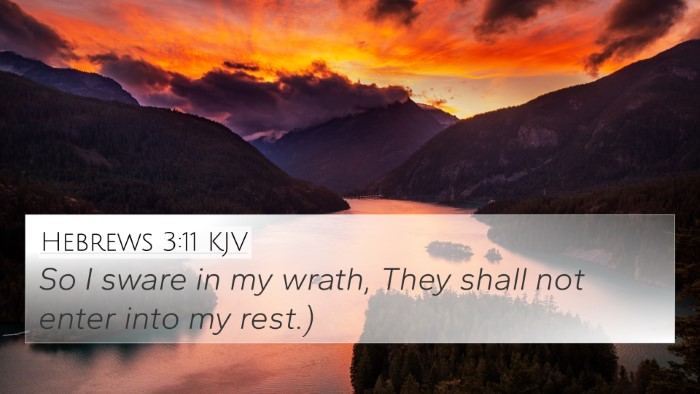Ezekiel 20:15 - Analysis and Interpretation
Ezekiel 20:15 states: "Yet also I lifted up my hand unto them in the wilderness, that I would not bring them into the land which I had given them, flowing with milk and honey, which is the glory of all lands."
Summary of Ezekiel 20:15
This verse serves as a poignant reminder of God's judgment against the people of Israel. It highlights a moment when God declared that despite His commitment to His people, their disobedience would prevent them from entering the Promised Land. The mention of the "wilderness" symbolizes trials and hardships, while the "land flowing with milk and honey" represents God's blessings that are forfeited due to sin.
Thematic Insights
- God's Sovereignty: This verse illustrates the theme of God's authority over His covenant promises. Through the judgment articulated here, it becomes evident that God's grace does not ignore human disobedience.
- The Consequences of Rebellion: The Israelites' repeated sins resulted in a denial of God’s promised blessings. The wilderness thus acts as a metaphor for spiritual and physical desolation.
- Mercy and Judgement: Ezekiel, as a prophet, conveys both the mercy and the judgment of God. His lifting of hands signifies hope and promise, even amidst punishment.
Bible Verse Cross-References
- Numbers 14:20-23: God's decision to keep the rebellious Israelites from entering the Promised Land is echoed here, emphasizing His justice.
- Deuteronomy 1:34-36: This passage provides further commentary on how the Israelites' unbelief led to their exclusion from the land.
- Joshua 5:6: This illustrates the consequences of their disobedience and underscores the importance of remaining faithful to God's commands.
- Hebrews 3:17-19: The New Testament reminds us of the unbelief of that generation, linking back to the waiting in the wilderness.
- Ezekiel 11:21: Contrasts the consequences faced by the exiles to those promised to the faithful among them.
- Jeremiah 32:30-31: Highlights similar themes of disobedience and the resulting judgment from God.
- Romans 9:1-3: Apostle Paul reflects on the tragedy of his people's estrangement from God due to their disobedience.
- Matthew 23:37: Jesus laments over Jerusalem, resonating with the historical context of Israel’s rebellion.
- 1 Corinthians 10:5: Paul uses the Israelites' experience in the wilderness as a warning for the church regarding disobedience.
- 2 Peter 2:9: Demonstrates God’s ability to preserve the faithful, contrasting with His judgment on the disobedient.
Comparative Bible Verse Analysis
To understand Ezekiel 20:15 deeply, it is essential to explore verses that discuss the nature of God's promises and the ramifications of rebellion:
- Deuteronomy 28:15: Describes the curses for disobedience, which align with the themes in Ezekiel.
- Isaiah 63:10: Speaks of the resistance of God's people against His Spirit, highlighting their patterns of rebellion.
- Exodus 16:2-3: Reinforces the rebellious spirit of the Israelites in the wilderness, their complaints mirroring later events discussed in Ezekiel.
Inter-Biblical Dialogue
This verse invites a dialogue between the prophetic literature and the letters of the New Testament. The themes of judgment, mercy, and disobedience recur across scripture, showcasing God’s unchanging nature while illustrating His interaction with humanity. The juxtaposition of judgment in the Old Testament with discussions of grace in the New Testament enriches our understanding of God's character and the significance of faithfulness.
Tools for Bible Cross-Referencing
For a thorough study of the connections between Bible verses like Ezekiel 20:15, consider using:
- Bible Concordance: A tool to locate verses and their connections easily.
- Bible Cross-Reference Guide: Helpful for understanding thematic links across different texts.
- Bible Cross-Reference System: Systems that categorize and connect verses by themes or subjects.
- Bible Reference Resources: Comprehensive materials that offer detailed explanations of scripture.
Cross-Referencing Bible Study Methods
To dive deeper into Ezekiel 20:15 and its cross-references, consider the following methods:
- Identifying Connections: Focus on comparing similar themes across both Testaments.
- Comparative Studies: Look at the same themes in different books, such as the connections between the Prophets and the New Testament letters.
- Thematic Studies: Use themes to group verses together for a cohesive understanding.
In summary, Ezekiel 20:15 serves as a crucial text that reflects God's justice and mercy. The interconnectedness of scripture allows for a deeper appreciation of His faithfulness and the consequences of human actions.
